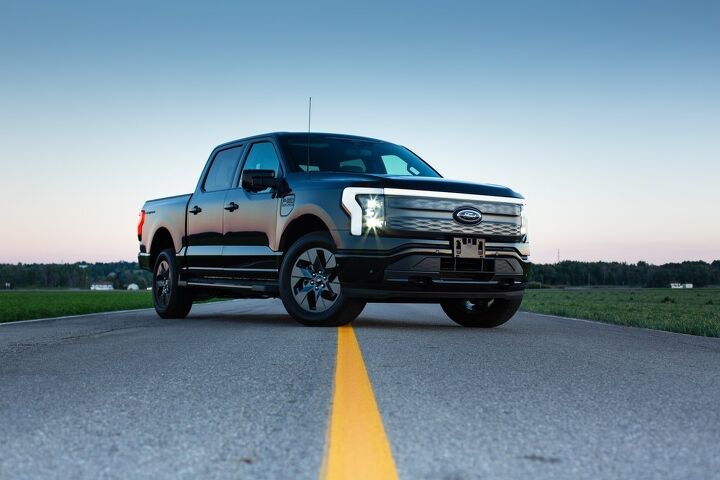From Coast to Coast: Uncovering the Most Loved Cars in Each State
Every state in America has its own unique preferences when it comes to choosing the right vehicle. These preferences are shaped by a variety of factors, including the state's geographical landscape, climate, and lifestyle of its residents. An article by J.D. Power explores the most popular vehicles sold be state.
- Alabama: Ford F-150
- Alaska: Subaru Outback
- Arizona: Toyota Tacoma
- Arkansas: GMC Sierra 1500
- California: Honda Civic
- Colorado: Subaru Forester
- Connecticut: Toyota RAV4
- Delaware: Ford Explorer
- Florida: Toyota Corolla
- Georgia: Chevrolet Silverado 1500
- Hawaii: Toyota Tacoma
- Idaho: Ford F-150
- Illinois: Honda Civic
- Indiana: Chevrolet Silverado 1500
- Iowa: Ford F-150
- Kansas: Chevrolet Silverado 1500
- Kentucky: Ford F-150
- Louisiana: Ford F-150
- Maine: Subaru Outback
- Maryland: Toyota RAV4
- Massachusetts: Honda CR-V
- Michigan: Ford F-150
- Minnesota: Chevrolet Silverado 1500
- Mississippi: Chevrolet Silverado 1500
- Missouri: Ford F-150
- Montana: Ford F-150
- Nebraska: Ford F-150
- Nevada: Toyota RAV4
- New Hampshire: Subaru Outback
- New Jersey: Honda CR-V
- New Mexico: Ford F-150
- New York: Honda CR-V
- North Carolina: Toyota RAV4
- North Dakota: Chevrolet Silverado 1500
- Ohio: Honda Civic
- Oklahoma: Ford F-150
- Oregon: Toyota RAV4
- Pennsylvania: Honda CR-V
- Rhode Island: Honda Civic
- South Carolina: Ford F-150
- South Dakota: Ford F-150
- Tennessee: Chevrolet Silverado 1500
- Texas: Ford F-150
- Utah: Ford F-150
- Vermont: Subaru Outback
- Virginia: Toyota RAV4
- Washington: Subaru Outback
- West Virginia: Ford F-150
- Wisconsin: Chevrolet Silverado 1500
- Wyoming: Ford F-150
The diversity in vehicle preferences across the United States reflects the varied lifestyles, climates, and terrains of each state. From the rugged Ford F-150 in Alabama to the versatile Toyota RAV4 in Oregon, each vehicle serves the unique needs of its local population. Understanding these preferences offers valuable insight into the regional characteristics and priorities of American drivers, emphasizing the importance of a vehicle's functionality, reliability, and adaptability in meeting the everyday demands of life across the country.
This article was co-written using AI and was then heavily edited and optimized by our editorial team.
More by TTAC Staff
Latest Car Reviews
Read moreLatest Product Reviews
Read moreRecent Comments
- JMII I see lots of ads for their CUVs but given the competition in this segment why would I buy an Outlander over a similar product from Toyota, Honda or Hyundai? Mitsubishi needs to offer something compelling, some hook or defining difference. I don't think I've encountered a single person who says "wow have you seen the new [blank] from Mitsubishi? I need to get me one of those".I owned a Mitsubishi Eclipse GS-T back in '96 and it was fun car. Mitsubishi once made interesting choices with a rally heritage - those cars were fast and pretty high tech at the time. Like Nissan they kind of fell into the we will finance anyone pool so other then an Evo as a track toy anyone I knew steered clear of them.
- ToolGuy It will be interesting to see how this does.
- TheMrFreeze Last I looked it wasn't the Gen Z'ers who had money to buy cars (or even have driver's licenses), it's us older folks who, by and large, aren't willing to risk spending that much money on a Chinese car
- TheMrFreeze Possibly a smart move by their parent company. If they position Mitsubishi here in the US to be a bargain brand, maybe build more low cost cars in places like Thailand (where the Mirage is/was built), they could possibly usurp the low-end segment of the US market the Chinese would have tried to occupy had the 100% tariff not happened. Mitsubishi does have the advantage of at least some brand recognition and an existing dealership network here in the US to start with.
- Tassos Consumers see the limitations of current EVs and EV infrastructure and charging on the road.This is why they have turned to hybrids and esp Plug-in Hybrids (those who can charge them at home) big way.


































Comments
Join the conversation